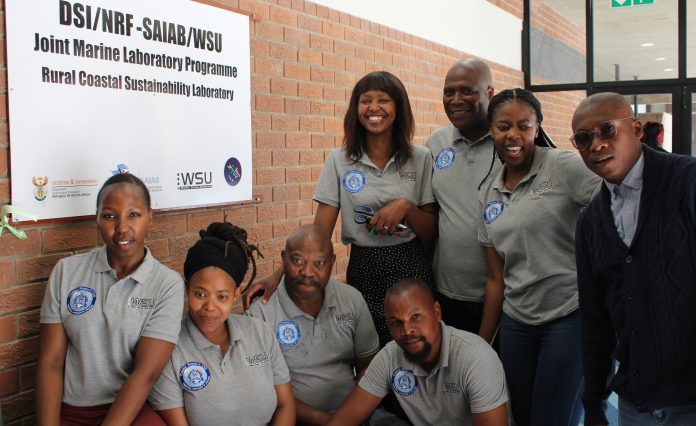The Walter Sisulu University (WSU) now has its own state-of-the-art laboratory for marine science research.
The laboratory was officially unveiled on Wednesday at the Mthatha campus of the Eastern Cape university. The project is part of the Joint Marine Laboratories (JML) Programme.
The five-year programme is funded by the Department of Science and Innovation (DSI) and the National Research Foundation (NRF) through its national research facility. The South African Institute for Aquatic Biodiversity (SAIAB) is also on board as funder.
Coastal livelihoods research
WSU is one of four historically disadvantaged varsities located in the coastal provinces to be equipped with cutting-edge laboratories. The labs focuses on specialised research to deal with challenges such as marine pollution.
Three other institutions also boast cutting-edge research laboratories as part of the programme. They are the University of Zululand (UniZulu), University of the Western Cape (UWC) and University of Fort Hare (UFH).
The WSU laboratory will focus on coastal livelihoods research.
Food security and climate change
Professor Elphina Cishe said the laboratory will focus on food security and climate change. The WSU’s acting deputy vice-chancellor for academic affairs and research said this in a statement issued by the NRF
“This (laboratory) is in line with our vision of being an impactful, technology-infused African university,” she said.
“We see this initiative as an attempt to deal with challenges faced by rural communities. We know that, according to the World Health Organisation, South Africa is said to be a food secure country. But when you look on the ground, we’re food insecure.
“Food security will be tackled through experimental studies. The studies will be on factors influencing the reproduction, life history and growth of different species under culture conditions.”
Marine pollution, marine resources
UniZulu’s laboratory, which was opened last December, specialises in marine and estuary pollution research. The UWC lab was launched in April last year and looks into micro plastics research. It also looks at how pollutants such as plastics are the marine ecosystem.
The UFH’s laboratory was the first to be launched in March 2022. It looks into marine resources that may be effective in treating common diseases such as diabetes and cancer.

The acting managing director at NRF-SAIAB, Dr Albert Chakona, said the launch of the lab at WSU was a culmination of discussions held in 2020.
Mission to bridge resources gap
“It was at the NRF-SAIAB 50th anniversary that a dream was born. [The dream] was to establish joint marine labs at the four universities that are part of this programme.
“The overall mission of JML is to bridge the resource gap and create opportunities for success by providing innovative solutions. Also to establish state-of-the-art research platforms at these universities,” said Chakona
“We’re gathered four years later to witness the fulfilment of this dream as the four labs have been fully constructed and launched. What started as an idea and visionary initiative has blossomed into a thriving community. A community united by the collective passion in education to push the boundaries of knowledge. To also drive innovation and particularly promoting inclusivity in the academic landscape,” he said.
SA’s commitment to the ocean economy
The JML programme was evidence of South Africa’s commitment to the ocean economy and research for sustainable marine life. This according to the DSI’s deputy director-general for research development support, Imraan Patel.
“Clearly, there’s a greater recognition of the importance of our marine regions and resources.
“I’m glad to see that WSU is taking its place in the broader family of South African institutions, both universities and other institutions. This will help us advance and take advantage of our marine resources,” said Patel.
Decade of oceans research
“It also comes at the start of the UN’s decade of oceans research. I hope that the colleagues who are running this lab will contribute, using this facility and other initiatives. [This will] enhance the profile of marine research,” he said.



